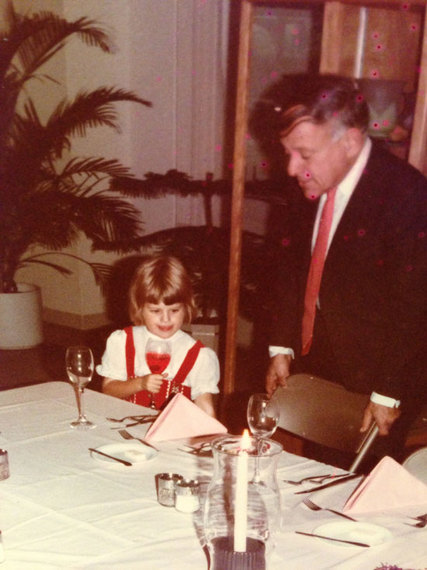As I act out "non-violent communication" scenarios with my child's omni-racial gender-neutral dolls, I realize that I am a product of the "politically correct" generation. I have been fully indoctrinated in its ideologies and being sensitive and tolerant towards others are the values I live by. Yet here's my dilemma: will applying these principles to my parenting mean that my child will grow up to be a spoiled brat?
In cultures throughout the world, initiations into adulthood are often achieved through painful and seemingly traumatic experiences. These rites of passage might involve crawling naked through a swarm of fire ants, circumcision where the foreskin is tied into a bow, or the pouring of poison into one's eyes -- only to be followed by beatings, whippings, and being burned by frog venom. The underlying idea seems to be this: through withstanding the suffering of these ceremonial ordeals, you will not only leave behind childhood but also prove your bravery to the community and yourself.
In my modern upbringing I never experienced anything as extreme, but I did spend a lot of time with adults who believed in the WASP dogma of "building one's character." My mom's stepfather once took my brother and me skiing -- and we all got lost and had to hike back up the mountain. Oh yeah, we were in the Alps, so it was kind of a big mountain. Being 6-years-old and carrying two skis and two poles while hiking in ski boots is nothing short of complicated, especially once the storm came in, making it impossible to see the cliff we were traversing. Then there was the time my other grandfather took us on a kayaking journey. At the tender ages of 12 and 9, my brother and I had to pick up going down waterfalls pretty quick, coming to terms with our fear of death and the fact that my grandfather often kayaked in the nude. Or there was when my parents sent me to Transylvania where I learned what it was like to skin a deer while blinded by tears, and how to improvise with stale bread as toilet paper.
I can acknowledge that these activities reveal my privilege, but there was also a blatant neglect of my feelings. I remember being afraid and vulnerable, yet these experiences also made me rely on my own resources. I am grateful they taught me how the effort of pushing through perceived limitations is empowering. Yet, I am not sure I can be this way with my child. I think many of my generation are facing a conflict between the approaches we grew up with, and how we are choosing to raise our own kids. While I can browse through endless content for advice on how to honor my kid's emotional impulses, parents of the past had to rely on old-school teachings, such as "hit child with wooden spoon who misbehaves." The PC culture that shaped me has had a positive impact on both myself and society, but it has also made me hyper-conscious of any potential disappointments or negativity my child might experience.
As my daughter transitioned from a baby, whom I unconditionally nurtured, into a toddler needing discipline, I realized that coddling was not the best strategy for the development of her personality. Yet it was challenging for me to knowingly put my child in uncomfortable situations. When she didn't want to go to school and hung onto my neck weeping, it took serious willpower not to simply scoop her up and bring her home. I had to remind myself that it is okay, and even important, to insist she does things she doesn't want to -- otherwise she would eat nothing but candy and be kind of a jerk.
I may not abandon my child in the wilderness, but I do want to cultivate in her the desire to challenge herself, and part of that is my challenging her. Pain is an unavoidable part of life, and something my daughter needs to learn to deal with. My responsibility as a parent is exposing my child to hardships. Although a new age of empathy is needed for our future, convenience and complacency do not build character. Being compassionate does not mean I have to be an enabling doormat. It is critical that I find approaches that ultimately remind my daughter of the strength she carries within.
